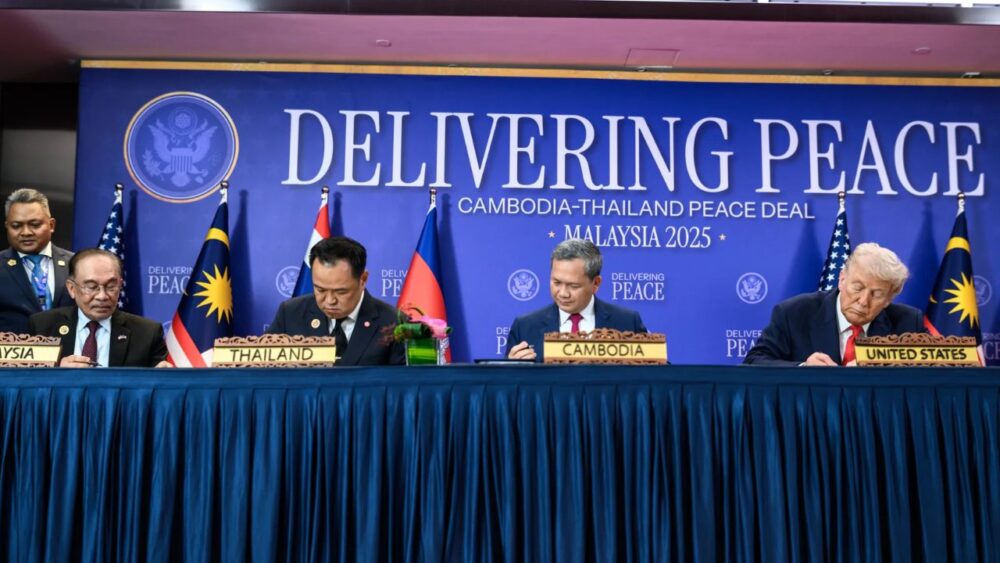President Donald Trump kicked off his Asia tour Sunday with a diplomatic blitz in Malaysia, securing peace accords, trade deals and critical minerals agreements. The whirlwind visit to Kuala Lumpur delivered multiple bilateral wins ahead of Trump’s broader regional tour.
The agreements mark Trump’s most significant diplomatic achievement since returning to office. They position the U.S. to compete more effectively in Southeast Asia while addressing longstanding regional conflicts.
The centerpiece was the Kuala Lumpur Peace Accords, ending military conflict between Cambodia and Thailand. Trump joined Prime Ministers Hun Manet and Anutin Charnvirakul in signing the historic agreement at the 13th ASEAN Summit.
On trade, Trump inked deals with Malaysia and Cambodia eliminating or significantly reducing tariffs on many U.S. exports. The agreements address non-tariff barriers and expand market access for American products.
Thailand and Vietnam signed frameworks for future trade agreements. Both countries committed to reducing tariff barriers and providing preferential access for U.S. industrial and agricultural goods.
Trump also secured critical minerals agreements with Malaysia and Thailand. The deals aim to diversify global supply chains and reduce dependence on China for strategic materials.
The Malaysia agreement includes billions in new investments alongside minerals cooperation. Thailand’s deal promotes partnerships between American and Thai companies while addressing unfair trade practices.
Malaysian Prime Minister Anwar Ibrahim greeted Trump at Kuala Lumpur International Airport Sunday. The presidents signed multiple agreements during the two-day summit before Trump departed Tuesday for the next leg of his Asia tour.
The White House framed the agreements as advancing Trump’s “America First” agenda. Officials emphasized benefits for U.S. workers, farmers and national security interests.
The peace accord represents a rare diplomatic breakthrough in a region often marked by territorial disputes. Whether the agreement holds will depend on implementation and continued U.S. engagement in Southeast Asia.


